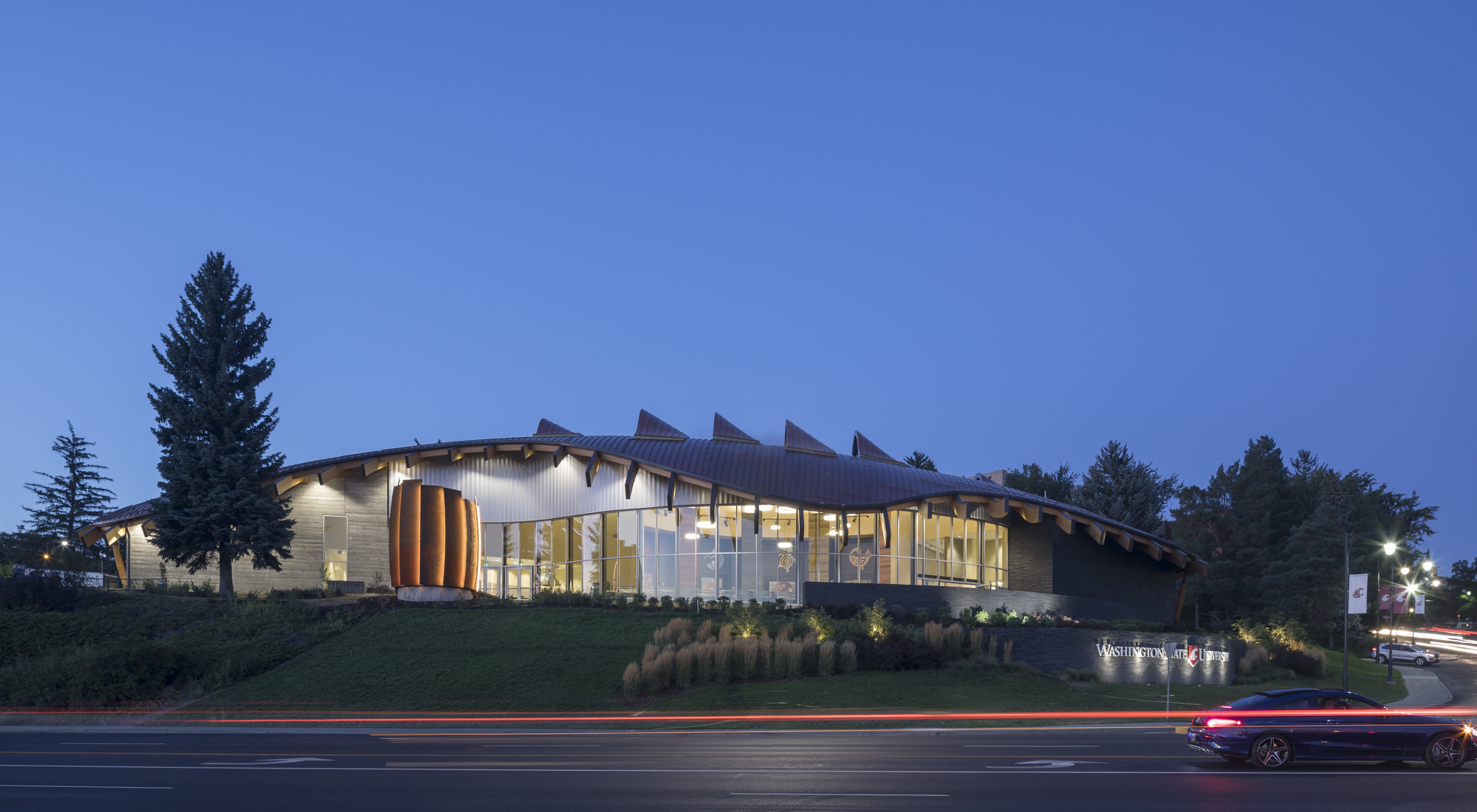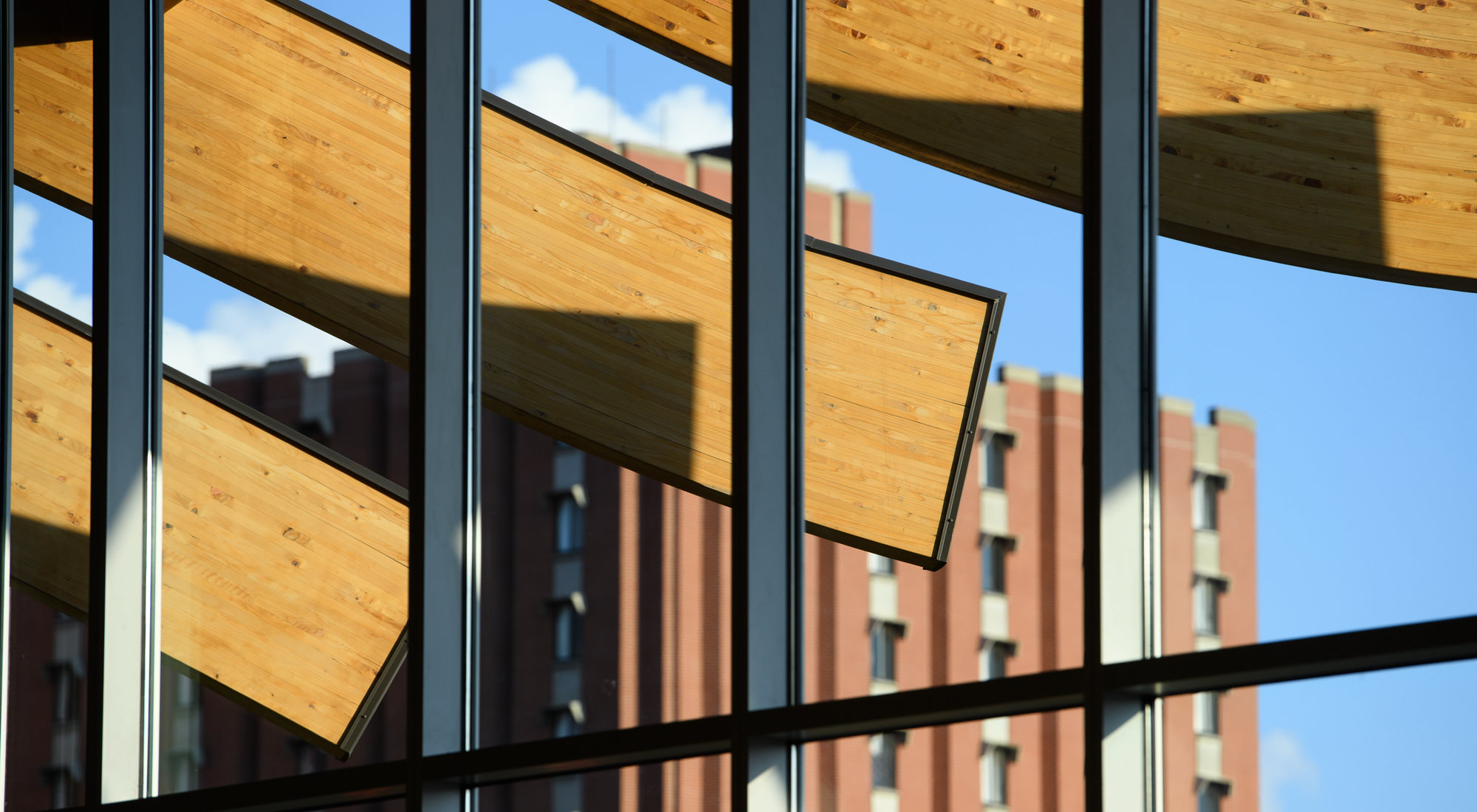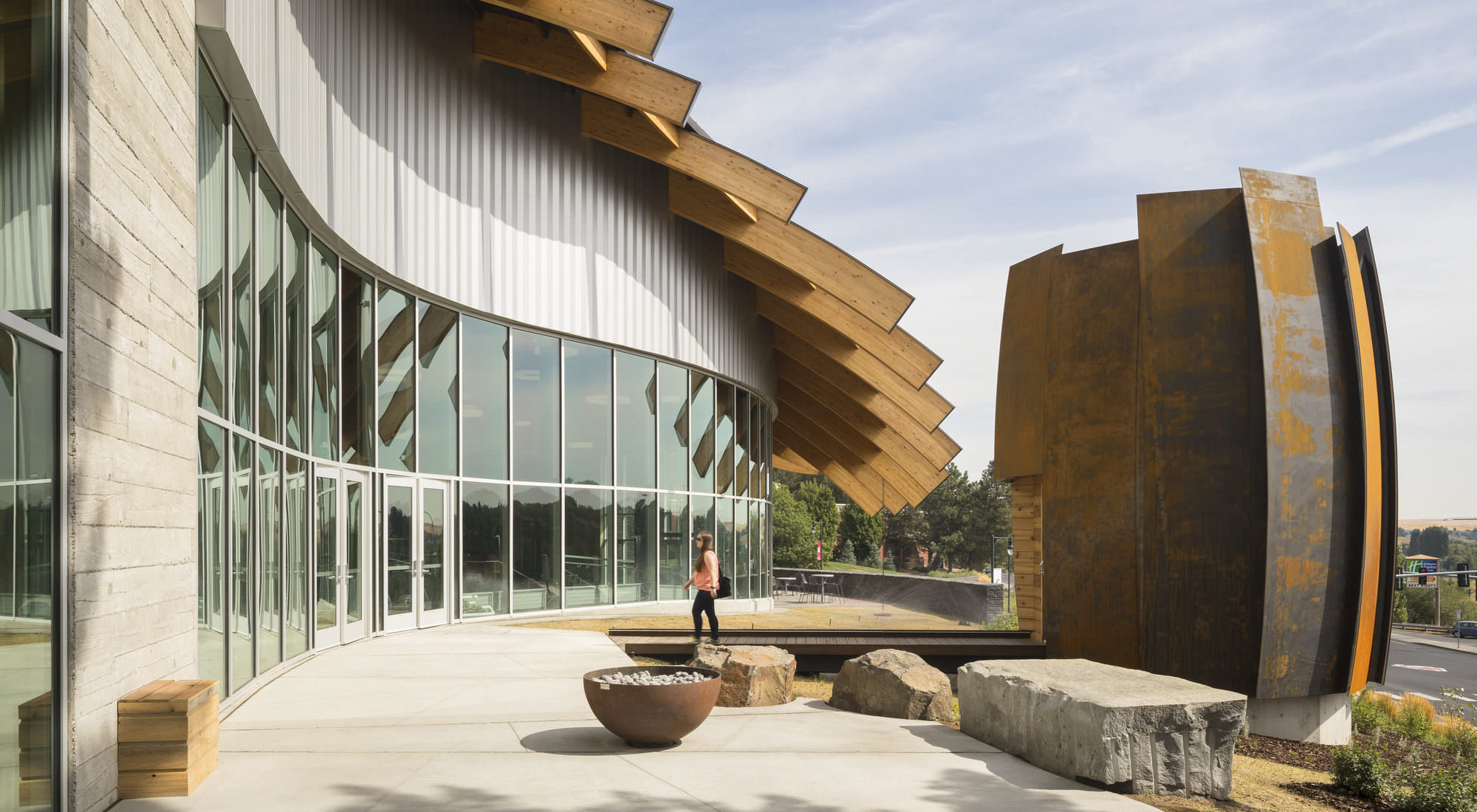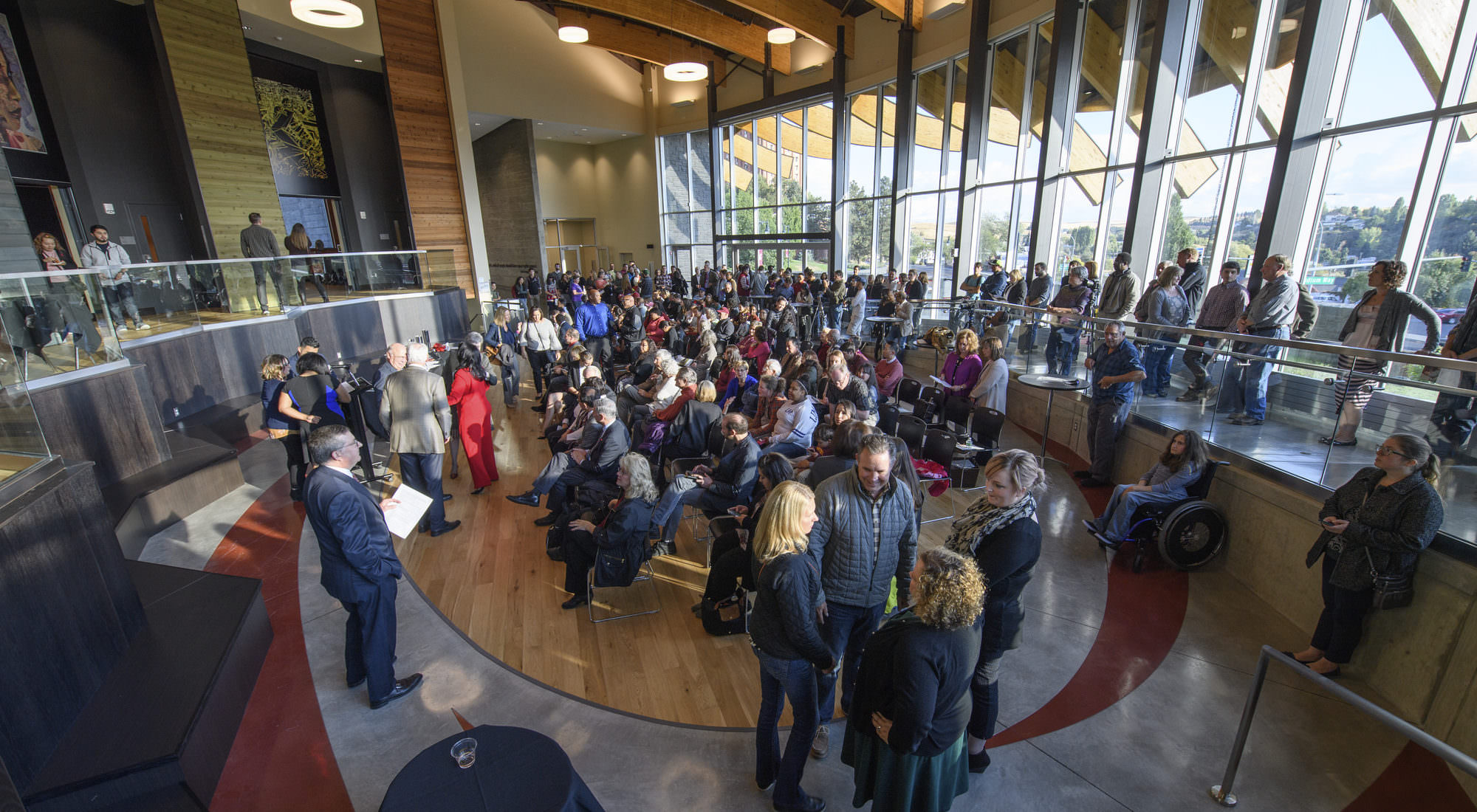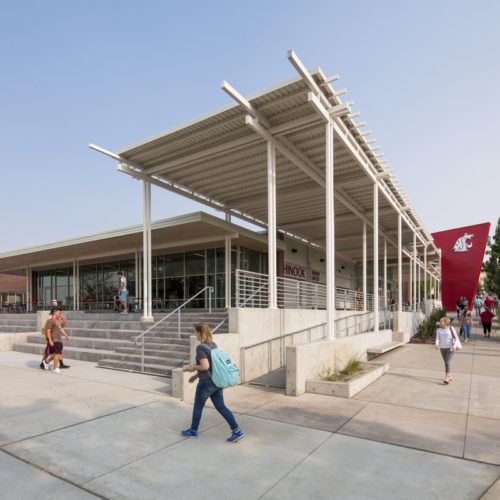- Architecture
- Interior Design
- Landscape Architecture
- Campus Environments
- Mass Timber
Pullman, WA
14,694 sf
LEED Gold
DBIA Best in Design — Architecture | Special Recognition, 2018
DBIA Chairman’s Award | Educational Facilities, 2018
DBIA National Award — Merit Award | Educational Facilities, 2018
AGC of Washington’s Construction Excellence Award, 2018
ACEC Washington Engineering Excellence Silver Award for Complexity, 2018
Students in culturally-diverse universities have long advocated for spaces that reflect their communities and their cultures. As Washington State University’s non-white student population reached 40% and continued to increase, the University aimed to create new spaces for inclusion. The Elson S. Floyd Cultural Center began with the vision that students from every background would have a place where they feel welcomed and “at home.”
Set at the main entrance to the WSU campus, the Elson S. Floyd Cultural Center’s design is expressed through a primal building form that references and flows across the surrounding Palouse landscape, erasing the line that distinguishes the built form and its context. Seamless indoor-outdoor celebration spaces, joined by symbolically patterned paving and transparent operable walls, are enveloped by a singular, iconic, and sheltering roof.
The primary gathering space or “living room” is the centerpiece of the project, designed and programmed for cultural celebrations hosted by the University and surrounding communities. Reflecting the university’s land grant mission and embracing traditionally underserved cultures of Washington, four knowledge rooms, which are oriented to campus and open to each other, provide educational forums for deep exploration of the individuality and interconnectedness of Asian, Native American, Latinx, and African cultures.
The Elson S. Floyd Cultural Center serves as a vessel for critical dialogues around race, ethnicity, intersectional identities, systems of oppression, cultural empowerment, and social justice. By creating a space specifically for engaging with diverse populations, WSU has a dedicated resource that aims to develop cross-cultural understanding across the entire university community.
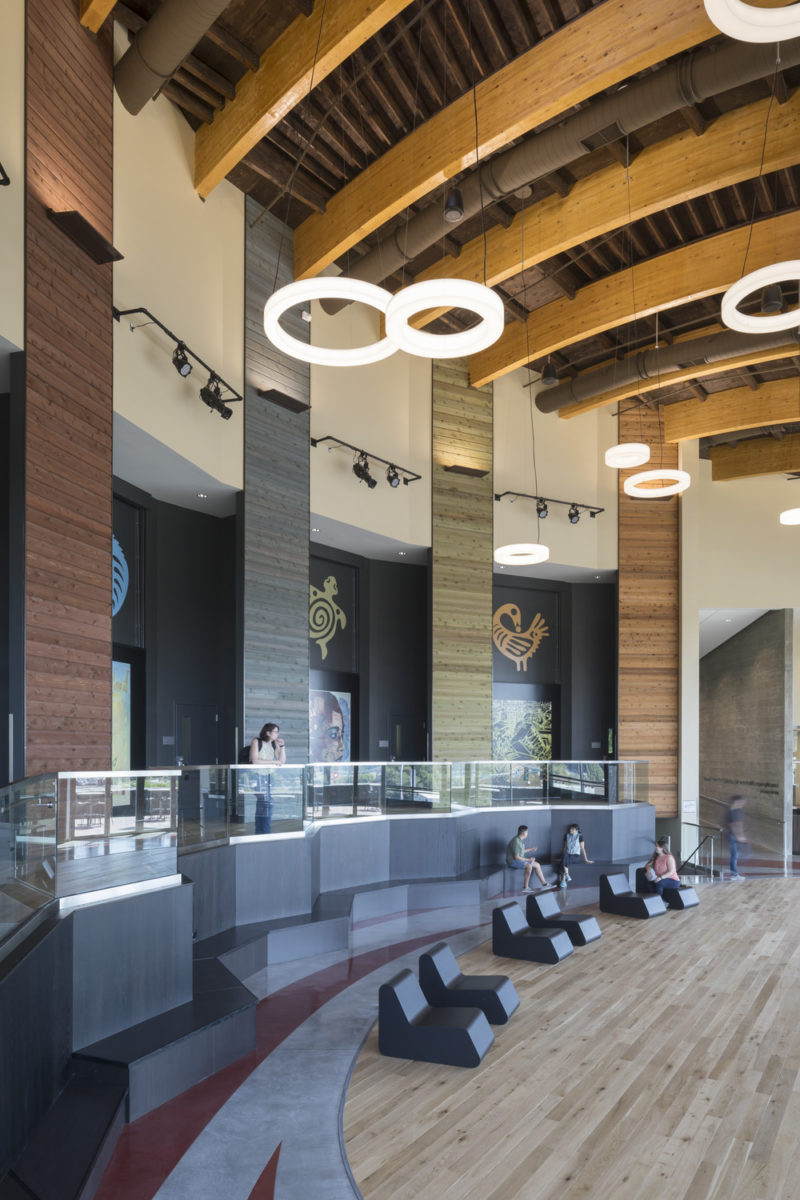
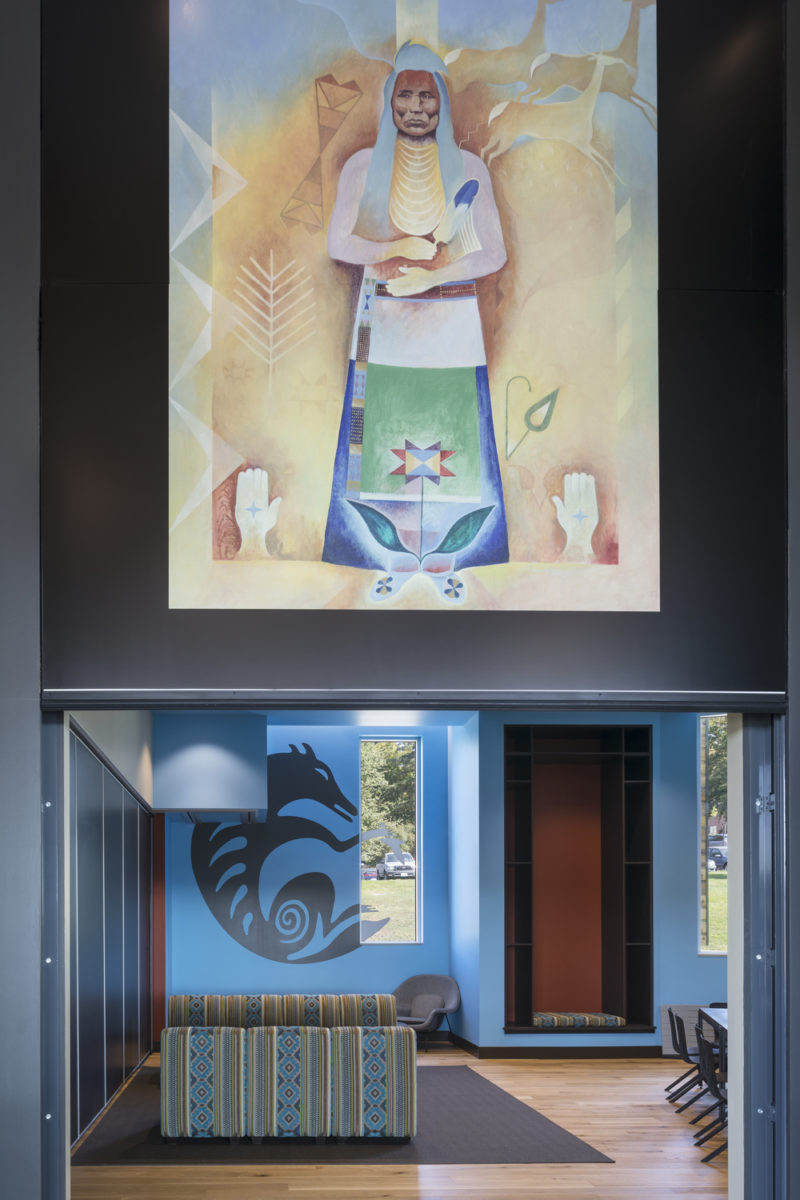
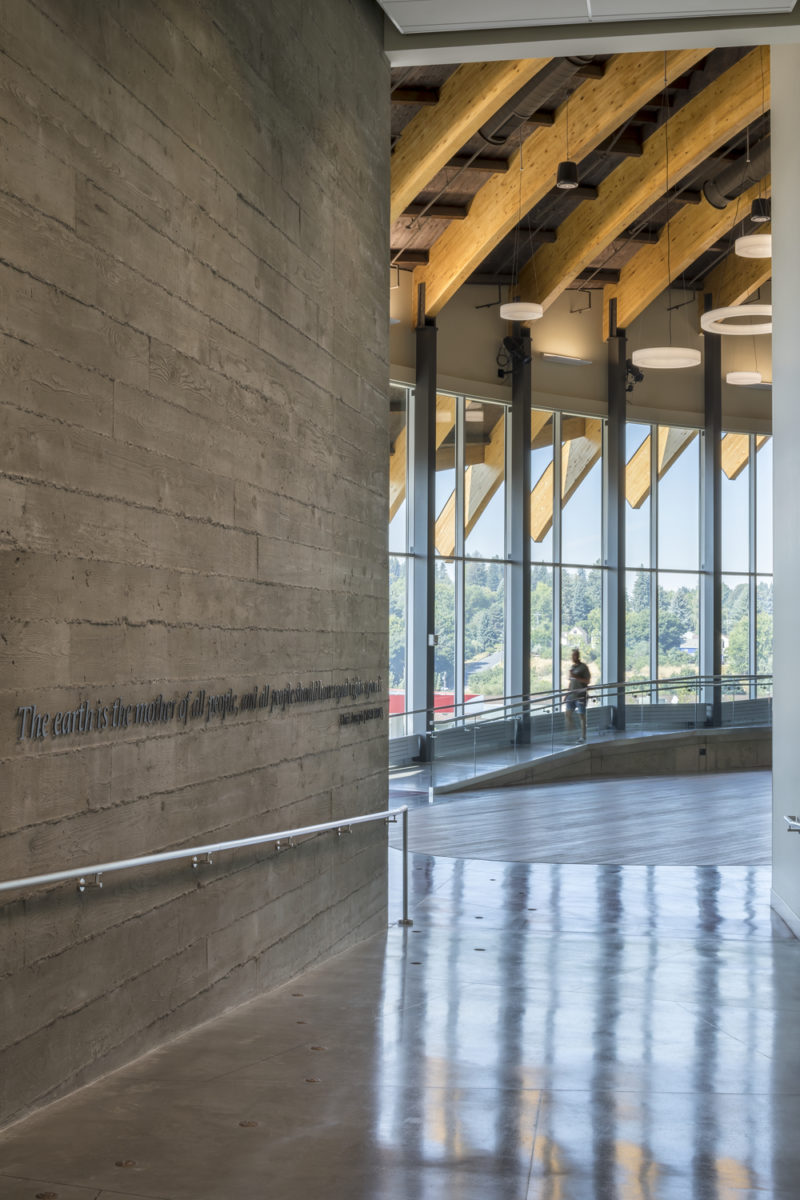
The Elson S. Floyd Cultural Center expands the notion of what it means to be a Coug

